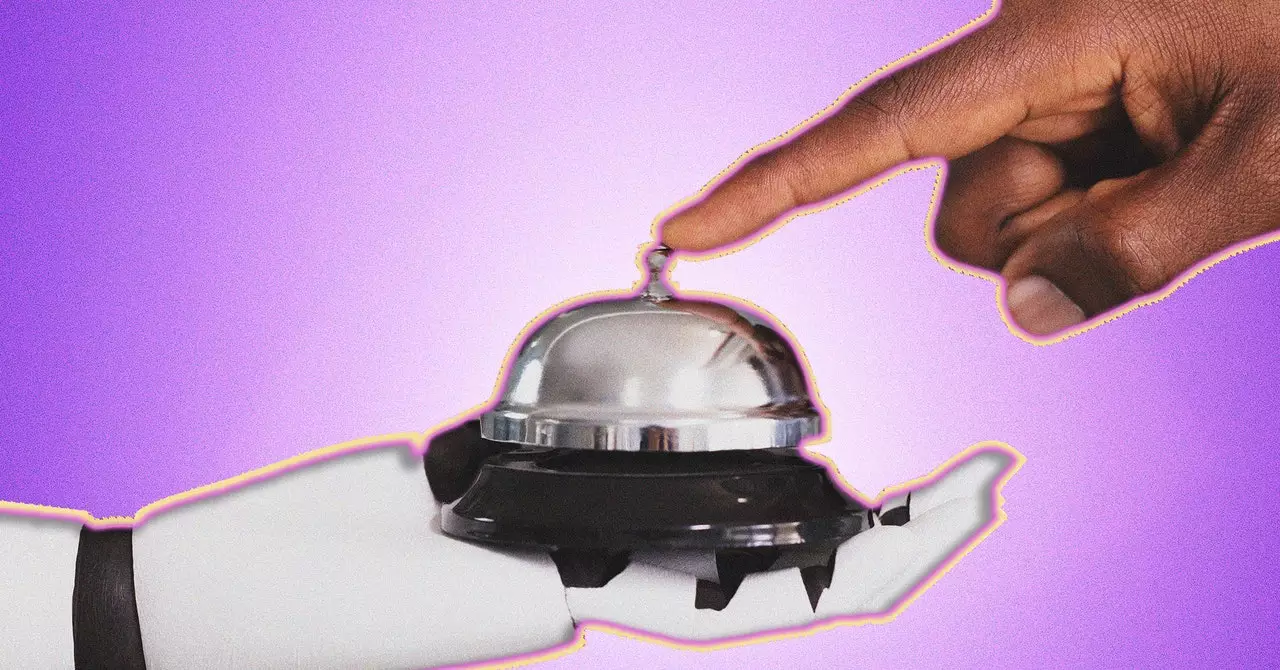In the age of technology, our interactions with businesses are rapidly evolving, and one of the most intriguing developments is the emergence of AI voice assistants as restaurant hosts. As artificial intelligence continues to integrate more deeply into daily life, dining establishments across the United States are beginning to adopt this technology to enhance customer service and streamline operations. This article explores the reasons behind this shift, the impact on both restaurants and diners, and the implications for the future of dining.
Gone are the days when customers predominantly relied on in-person visits or traditional phone conversations to get information about their favorite restaurants. Instead, AI voice assistants have entered the scene, offering a solution that caters to the urgency and convenience that modern consumers crave. By handling basic inquiries such as dress codes, seating availability, and reservation management, these AI systems free up restaurant staff to focus on more complex tasks, ultimately improving the overall dining experience.
Startups like Maitre-D AI, Newo, and RestoHost are paving the way in this burgeoning niche. These companies harness natural language processing and machine learning to create phone systems that not only understand but also respond to customer queries accurately and efficiently. This innovation is particularly beneficial for restaurants that experience a high volume of inquiries, especially during peak hours. Busy establishments can expect a significant reduction in the burden placed on front-of-house staff, allowing human employees to devote more attention to in-person guests.
One of the pivotal aspects of implementing AI voice assistants is their ability to cater to various demographics. Some customers prefer the convenience of calling, especially older patrons who may not be as tech-savvy as younger generations or individuals who are multitasking while driving. The Yelp Generation, comprising a significant portion of modern diners, values instant answers without sifting through a website filled with information. AI voice assistants meet this demand, providing prompt responses that can facilitate last-minute bookings and address specific customer concerns seamlessly.
Moreover, voice AI platforms are designed to handle a range of inquiries, including allergy policies and special requests. By offering multilingual support, these systems can enhance inclusivity for diverse communities, ensuring that language barriers do not hinder anyone from enjoying a dining experience. Thus, AI voice assistants have the potential to transform the way restaurants interact with a broad spectrum of customers, ensuring a more accessible and welcoming environment.
The enthusiasm around AI voice assistants is palpable among restaurant owners who have begun utilizing these systems. For instance, Matt Ho, the owner of Bodega SF, shared how implementing Maitre-D AI transformed the flow of operations at his restaurant. The continuous ringing of phones interrupting service was not just a minor inconvenience; it represented lost opportunities for customer engagement. By integrating AI technology, Ho has reported smoother service and a serene atmosphere for diners.
Business owners are also discovering ancillary benefits beyond just efficiency. By automating routine inquiries, restaurants can gain insights into customer behavior and preferences, allowing them to tailor promotional efforts more effectively. Owners can analyze patterns in calls to determine peak inquiry times, which could inform staffing schedules or help decide promotional strategies during slow periods.
As AI voice assistants become more prominent, the ramifications extend well beyond just operational changes for restaurant owners. This evolution prompts a broader conversation about technology’s role in society, particularly when it comes to hospitality. The balance between human touch and technological efficiency is delicate; restaurants must remain mindful not to alienate guests who value interpersonal interactions.
The ongoing conversation surrounding AI in the dining industry reflects larger societal trends. With the advent of consumer-centric AI tools, the culinary landscape is poised for a significant transformation. More than just a trend, the integration of AI voice hosts could very well signal the beginning of a new chapter in dining experiences. While challenges may arise in ensuring that patrons still connect with their dining environment on a human level, it is clear that AI has already made significant strides in enhancing accessibility and convenience in the restaurant sector.
AI voice assistants are set to reshape how restaurants operate, directly impacting customer interactions. As technology continues to advance, the hospitality industry would do well to embrace these changes while remaining committed to the quintessential human elements that make dining such a cherished experience. With an open-minded approach, restaurants can harness the power of AI to create an evolved dining landscape that appeals to a wide range of patrons.


Leave a Reply